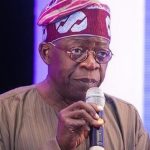
The National Human Rights Commission (NHRC) has expressed concern over the increase in the use of hate speech by politicians across Nigeria in pursuit of political support. According to Fatimah Agwai Mohammed, the Deputy Director of Public Affairs of the Commission, ethnic and religious sentiments are being used to create division, fear, and hatred among different groups.
The Executive Secretary of the Commission, Chief Tony Ojukwu (SAN), made this known in Abuja ahead of the Gubernatorial and State Assembly polls scheduled for March 18. Ojukwu bemoaned that this menace has now extended into places of worship, where religious leaders are joining the unholy enterprise of spreading hate speeches.
He noted that the use and misuse of social media to spread ethnic and religious hate-laced messages is also worrisome, with far-reaching and complex implications, and can lead to violence and tension between different religious and ethnic groups, disrupt social, cultural, and religious harmony and affect rights to associate, assemble, freedom of movement, and the right to live in any part of the country.
Ojukwu also cautioned that this situation can lead to a breakdown of law and order, increasing vulnerabilities and risks, including death, internal displacements, kidnapping, drug use, recruitment into terrorist activities and other forms of human rights and humanitarian concerns.
He emphasized that Nigeria is a signatory to regional and international human rights instruments that guarantee everyone’s right to association, assembly, residence, expression, freedom of thought, conscience, and religion. He added that the Cybercrime (Prohibition, Prevention, etc.) Act 2015 criminalizes the use of the internet to send offensive messages or post messages that are intended to cause harm, fear, or distress, and individuals who engage in hate speech online can face severe consequences.
Ojukwu called on the government to reaffirm its commitment to the secular nature of the Nigerian State under section 10 of the Constitution and protect all persons from the violation of their right to freedom of residence, association, assembly, political party, or association of choice, freedom of thought, conscience, and religion while also protecting everyone’s right to participate in elections and vote for candidates of their choice anywhere in the country.
The Chief Human Rights officer of Nigeria urged all individuals involved to take urgent steps to stop these divisive tendencies, as the Commission is concerned about the impact this can have on the 2023 General elections and beyond. He stressed that disseminating ideas that project the supremacy of one tribe or religion over another or incite violence on one religion or tribe against others is a crime and violates the 2022 Electoral Act.





Comments are closed.